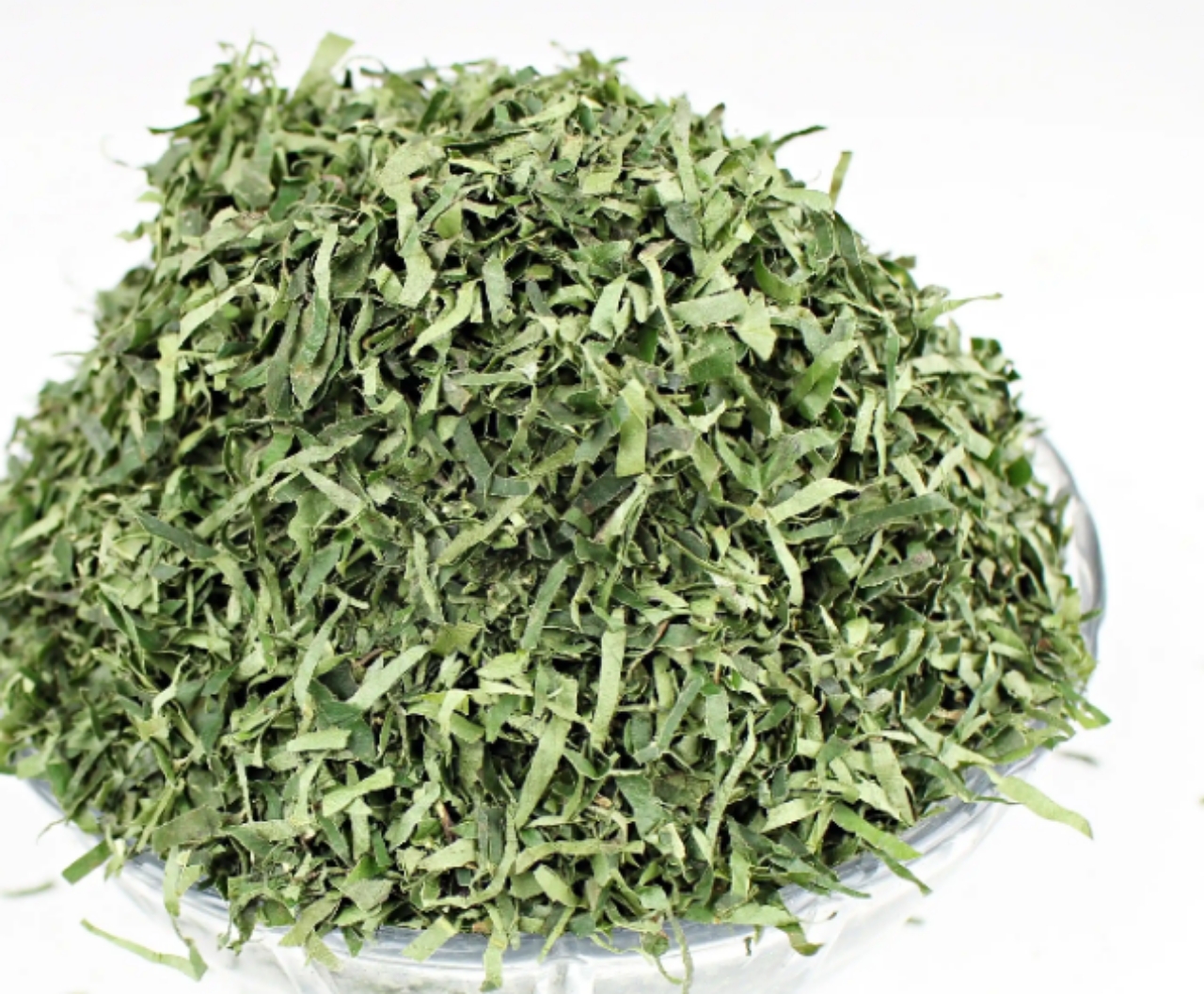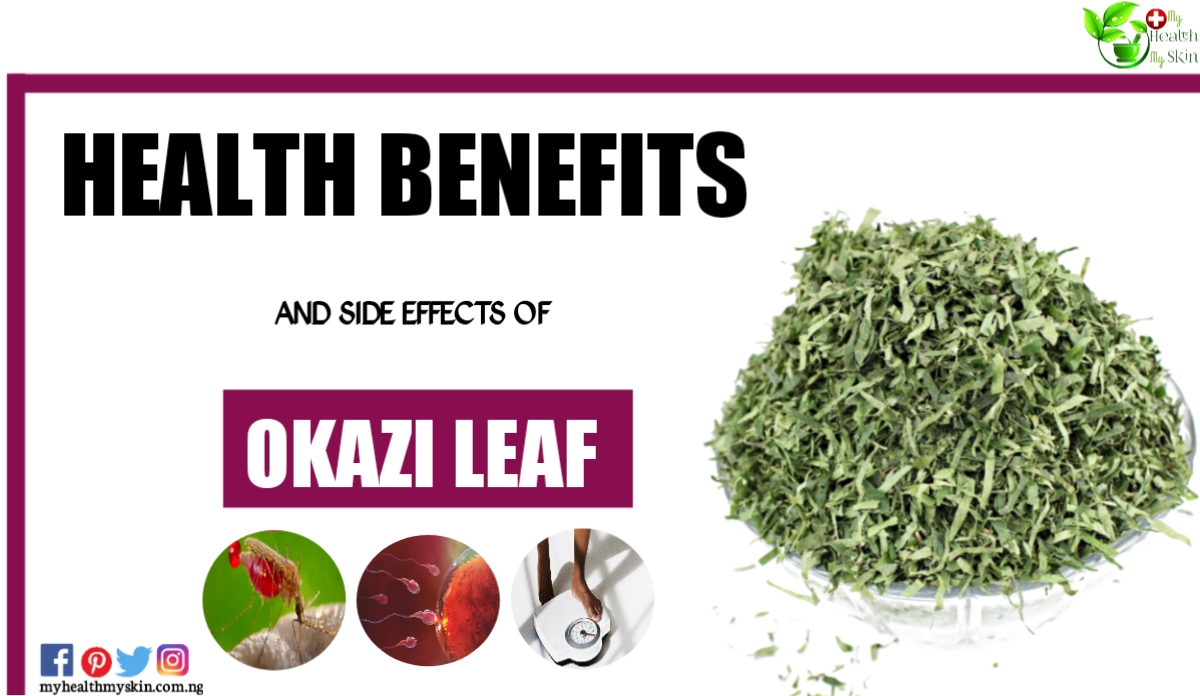In this post we’ll be talking about the 10 Potential Health Benefits And Side Effects of Okazi leaf / Afang leaf (Ukazi and Pregnancy).
Also called wild spinach, okazi or afang leaf, but most of us are familiar with its native name. It is a leafy vagetable, dark green in color with a slightly bitter taste. Both the seeds and leaves of this plant are edible. Ukazi is used in preparing various delicacies, cusines and recipes in Nigeria and other African countries such as Congo, Gabon, Angola, Asia and South America.
Okazi, botanically known as Gnetum africanum is known to have originated from Angola, Cameroon, Central African Republic, Congo, Gabon and Nigeria. But today has a pan-tropical distribution.
Gnetum africanum is grown in various countries across Africa, including: Cameroon (Eru, okok, m’fumbua, or fumbua), Angola (KoKo), Nigeria (ukazi leaf, okazi leaf or afang), Gabon (KoKo), Central African Republic (KoKo), Congo (KoKo), and the Democratic Republic of Congo (m’fumbua or fumbua).
The potential health benefits of okazi leaf (afang) include the treatment of enlarged spleens, sore throats, and nausea. Okazi also eases constipation and helps to control blood sugar levels in people with diabetes.
Nutritional Value of Okazi leaf (Afang)

- Per 100g of dry leaves, afang provides 44g of carbohydrates,
- 12.8g protein,
- 37.8g fibre,
- 2.4g fat,
- 249mg calcium,
- 39mg magnesium,
- 121mg iron,
- 0.8mg of zinc.
Okazi leaf is an excellent source of aspartic acid, fiber, cysteine, proline, vitamins, sodium, magnesium, calcium, iron, zinc, potassium, copper.
Health Benefits of Okazi leaf ( Afang leaf)
The health benefits of Okazi are as a result of the rich antioxidant, vitamins and mineral content.
And as a result of its properties, it can be used as a remedy for certain ailments such are:
1. Treat Boils and Warts
It is also a dressing for warts, haemorrhoids, and boils. Ukazi leaves are also used to brew teas that soothe labour pains, and to control blood sugar in diabetic patients.
2. Digestion and Weight Loss
Fibre keeps you fuller for longer and helps to reduce appetite, both of which can promote weight loss. The high fibre content of afang also prevents constipation. Okazi leaves have a laxative effect if you eat a large amount of it.
Leaves older than 12 months have a greater laxative effect than those between 2-3 months of age.
3. Treats Skin Diseases
Okazi leaf heals and cures common skin diseases, such as eczema, and rashes, just by squeezing the leaves and applying the juice and paste on the affected parts.
4. Bone Health
Ukazi is a rich source of calcium especially for people who are intolerant to dairy or those who eat a vegan diet.
Calcium is important for bone and teeth health, especially for adults over the age of 50 who have a higher risk of developing osteoporosis.
5. Healthy Heart
The fibre in okazi can help reduce bad (low density lipoprotein) cholesterol levels, thereby supporting heart health. Eating fibre regularly also lowers the risk of cardiovascular disease and coronary heart disease, and helps to slow the progression of heart disease in individuals who are already affected with it.
Ukazi is a great source of quality proteins since they provide the essential amino acids we need for growth and tissue repair. Replacing meat with okazi as a source of protein can help to reduce the amount of saturated and trans fats in the diet. This can also help to reduce the risk of cardiovascular diseases.
6. Controls excess urination
The seeds can be chewed raw for controlling excessive urination in kids and adults as well and used in the treatment of overactive bladder.
7. Treats Malaria
Afang leaf helps in combating diseases as it has anti-bacterial and anti-parasite properties that are needed to cure malaria.
8. Treats Enlarged Spleens, Constipation and Sore Throats
In nigeria and other African countries, ukazi leaves are used to treat enlarged spleens, constipation and sore throats. It is also a means to relieve emotional distress. The plant is a remedy for nausea and an antidote for certain types of poisons.
9. Lowers blood pressure
Ukazi is a good source of magnesium, a mineral that helps to decrease blood pressure.
10. Ukazi promotes fertility.
Okazi leaf increase blood flow to the sexual organs and helps boost sexual desire and ovulation in females and boosts penile erection and libido in males.
Is Ukazi safe in pregnancy?
Yes, it is. Pregnant women can consume foods prepared with Ukazi and soups. They have nothing to worry about. Afang leaf helps prevent early morning sickness such as vomiting in pregnancy. Okazi leaf has has not been reported to cause birth defects or miscarriage in women.
These are the other names of Gnetum africanum
Okazi Leaf Common names (tribes/languages):
- Ukazi leaf (igbo)
- Okazi leaf (ibo)
- Afang leaf (ibibio/akwa Ibom)
- Eru
- Okok
- Ukase
- M’fumbua, or fumbua
- African Jointfir
- Wild spinach (English)
- Gnetum africanum (botanical name).







